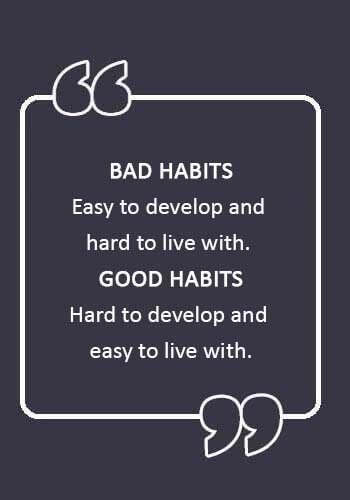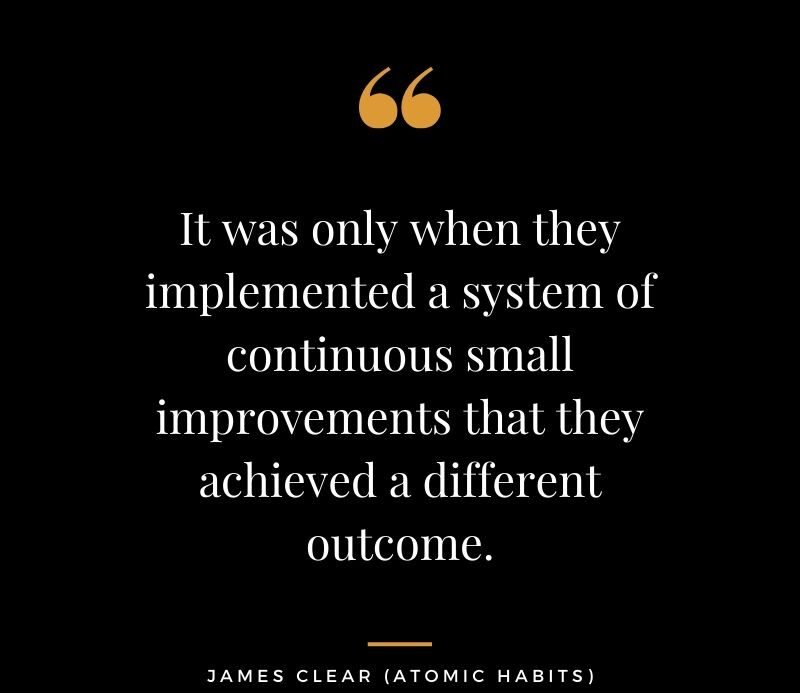Lets Break It Down..

It’s Worth it!
So we all I feel have an understanding of the importance of habits by now. The importance of building GOOD habits into our lives. Understanding its the small daily decisions we make that lead us down one of two ways. But before we get into all that.. I want to first maybe discuss the finest details behind habits and why they can be hard for us to get rid of. I want to go into a more detailed/scientific level today because. Well the more we know the better right? I mean how many of us look up the scientific reasons behind why I keep doing the things I do? I’m sure not many lol. Hey its ok! I was one of you too:) But I just overtime started to get a desire for understanding and learning. Sometimes now it’s hard to slow my brain down. But I do my best.. But if you want to really understand to a cellular level on Habit forming then lets get into it!
Ok Lets start with the Habit Loop.
Journalist Charles Duhigg talks about the concept of the habit loop in “The Power of Habit: Why We Do What We Do in Life and Business.”
The loop, he explains, offers the key to help figure out how and why habits develop.
Lets break down the loop to better explain.
The Cue
- There are Time Based Cue’s. You have an alarm set most days at the same exact time. Or at least very very similar. Cue’s of what you do when you wake up because you know the timeframe you have before you have to leave. All those cue’s in a day that are habitual to your routine. So utilizing it in a way that benefits you can really help simplify doing it. If your wanting to add something new into your week to do something you want to do look at where in the week and a time to do whatever it is your wanting to start routinely doing.
- There are Location Cue’s. Think about when you go to the store…. You walk in. You maybe have a list… Or maybe not. Maybe you just go in there with just an idea of what you need, but if something magically pops into my cart i’m not going to say no! lol. But you know where in the store the items are and how to best navigate your way around the store right? I’ll bet you do lol. I do too so its ok…. Also when your driving to places you routinely go. Work, the gym, studio something that is in your routine parts of your day. Then when someone is asking for directions and streets and you draw a blank. Isn’t that crazy lol… Our subconscious part of our brain has created pathways in your brain to make it easier for you to do that specific task. How I Have utilized it in the past. Is with for example the gym. If I was doing legs and new what really warmed up my legs best or gave me a great workout last time. I’m going to get to that one first. Use this cue in ways that can be beneficial in streamlining your days.
- Preceding Event. So this means for example. If your phone makes a certain sound when you get a text message. Your brain automatically knows that sound means a text. Or an IG message sound when that comes in you know its social media. Then what some of us do is rush to pick it up after the notification. What if your like damn.. Why cant I just chill and prioritize what i’m currently doing and know that I say when I pick up the phone. Not the habit my brain wired thru my actions. So in other words a response that is triggered by an event that is routine in your day. That was actually me! When my phone would go off I would always immediately in my head focus on that over what I was doing. I did tell myself hey James chill. It can wait a minute lol. So I had to start to re-wire my habit to create a new one. I would tell myself literally in my head to finish what I was doing first focus on that. Then check the phone. Now I can say that I no longer have that issue.
- Emotional State. In my experience, emotional state is a common cue for bad habits. For example, you may have a habit of eating when you feel depressed. Or, you may default to online shopping when you feel bored. The emotional states of depression or boredom are triggers for these negative habits. This can lead us for years unaware of setbacks we are slowly putting ourselves into. So this one I would really focus some extra time into figuring out. I would encourage you if this is an issue for you? To start elevating your self-awareness of your actions after this cue. But give yourself grace in the process. Don’t cause more potential harm to your emotional state. Learn to overtime control your emotions. There are ways to help in doing so. To be transparent. I battled with a certain action to an emotional state that I would get into, for most of my life till about 6years ago. I would shutdown and go inward. I have made tremendous amounts of progress on this but still to this day can have those habits try and fight their way back in. So dive into yours. For your sake.
- Other People. So some of us at times we may act a certain way when someone is around. When your boss or leadership is around your more on your toe’s aren’t you? lol….. Or if friends/family comes over you know you can just relax and be your rawest and weirdest self around! Even someone you can’t stand for whatever reason and they make your blood boil. But you realize that isn’t good for anyone in the situation. Those cue’s of how to act or behave. Or misbehave in some cases lol. So if your not proud of how you may act around certain people for whatever reason. Look into noticing how you are around them. Start to keep yourself more accountable for how you respond or behave. Find your authentic true self if you want to be just you.
Routine
- Routine. This is the behavior that you are performing, whether it’s a desired habit you’re trying to build or a negative habit you want to break. Routines become automatic with repetition, freeing up mental energy for other tasks.It can be conscious or unconscious: Some routines, like closing your laptop at 5 p.m., are conscious. Others, like biting your nails when nervous, might be less conscious. Habitual behaviors often become automatic over time.
Okay, let’s focus on the Routine part of the Habit Loop and how you can manipulate it to successfully create new habits. Remember, the routine is the behavior or action you perform in response to the cue.
Key Strategies for Leveraging the Routine to Build New Habits:
- Start Small: Avoid trying to build a new habit all at once. Break it into small, manageable steps. For example, if you want to start exercising, begin with a 5-minute walk instead of committing to an hour-long workout. This makes the routine feel achievable, even when motivation is low.
- Habit Stacking: Link a new habit to an existing one that is already done automatically. For example, “After brushing your teeth, drink a glass of water”. The existing habit (brushing your teeth) serves as the cue for the new habit (drinking water), making it easier to remember and perform.
- Make it Easy: Reduce the effort required to perform the new routine. This could involve preparing the environment in advance, such as laying out workout clothes the night before if you want to exercise in the morning. Making the routine effortless increases the likelihood of following through.
- Prime Your Environment: Design surroundings to make the desired behavior more likely to be done. For instance, if you want to eat healthier snacks, keep them easily accessible while removing unhealthy options from plain sight or not have any around at all.
Reward
- Reward. This part is the biggie. Our brains are wired to build habits that make us feel good. Whether it’s the dopamine rush after a great workout or the calmness you feel after your daily meditation. Habits, good or not-so-good hinge on how they make us feel.
- So if you’re looking to build a new habit, it helps to reward yourself in some way so that your brain is excited and, as a result, more likely to want to engage in the behavior again. The reward doesn’t need to be anything big, and it’ll be different for everyone.
Extrinsic rewards: Think external sources like incentives, discounts, external praise and recognition and avoiding fines or penalties to reward the desired behavior. - Intrinsic rewards: Internal drivers that reaffirm our identity. Things like personal fulfillment, desire to explore, be independent or to feel joy. It could also mean being a good parent, partner, or colleague.
- Reinforcers: Repetition is key to habitual behavior. To reinforce and set up the next behavior, consider pre-commitment prompts, completing the first step in advance. Also things like reminders, discounts even incentives for the next behavior.
Let me give you some great videos that are pretty eye opening to gain a deeper understanding.
The Neurology of Habit Formation.
Whether you are trying to quit smoking or eat more vegetables, changing your habits takes more than willpower. Habits are shaped by how your brain learns and makes decisions. A recent study found that we form habits through rewards and consistent repetition. Changing your habits can be hard, but thru repetition. It may be the key to maintaining a healthy routine.
The prefrontal cortex of our brain goes offline sort of speak when we’re hungry, angry, lonely, or tired.
Trying to think your way out of anxiety or a craving doesn’t really work.
Everyday habits like overeating or worrying activate the same reward pathways in the brain as drugs of abuse.
The orbital frontal cortex of your brain constantly updates the reward values of habits, leading you to choose chocolate over broccoli.
Bringing curiosity and an awareness to your cravings changes your relationship with them and de-activates brain areas involved in craving.
So In Closing..
So we understand now further right? The habits and routines that are in the silence of the day need to be re-adjusted from time to time. Our lives are continuously changing. So should we. We shouldn’t just be in this fixed mindset that this is it! IT’S NOT. You should want to grow and become better. Make yourself look back one day and say damn!! I did that? Not alone of course.. But you can say that you put in hard work to be a better you. I don’t know about you but thats a very satisfying feeling to me. Chat soon my friend!

Leave a Reply